Devin: What do you see as your superpower?
Jeff: I will say something maybe a little bit contrarian, which is that I actually think that the nuts and bolts of stuff is what matters.
Jeffrey Robbins, a partner at Saul Ewing and syndicated columnist, was part of the guest impact creators delegation visiting Israel last month. We both concluded that the best part of the trip was the diverse composition of the delegation itself. I invited each member of the 8-person delegation to be a guest on the show.
AI Summary of the Podcast
Jeff Robbins is a lawyer and syndicated columnist who twice served as the United States delegate to the United Nations Human Rights Commission.
He admires Hillary Clinton’s influence on human rights issues and challenges Trumpism in his writing.
He feels an obligation to write against Trumpism and states his appalled sentiment toward it.
Robbins has written for conservative newspapers like The Boston Herald.
Robbins believes in paying attention to detail and reading documents carefully, with no shortcuts or substitutes.
Robbins catches important evidence during litigation by paying attention to small details.
He encourages younger lawyers to embrace the “drudgery” of thinking about everything and taking responsibility for their cases.
Earlier in his career, Jeff worked as a staffer in the U.S. Senate. That led to his developing a powerful network that yielded appointments from President Clinton for two years to serve as a delegate to the United Nations Human Rights Commission.
Jeff shared the story of his experience as a delegate:
The United Nations, the United States has a tradition of appointing four so-called public delegates from outside the Foreign Service, from outside the State Department, to attend the Human Rights Commission. The idea, I think, originated with Eleanor Roosevelt when the UN was founded. The idea was that there should be some expression of the American public at the council. So the White House appoints four or five people a year to go.
I have to say it was moving. I mean, on one level, of course, the UN is full of bloviation and nonsense and almost Monty Python-like silliness in terms of the rhetoric and the meaningless folderol. There is all that. But there's also a tremendous amount of idealism.
The council every year is attended by hundreds of activists and refugees and victims and advocates for victims. And as a delegate for the United States, the United States being the 800-pound gorilla, there is actually opportunity to speak out on their behalf and to lend support to their various causes.
These are stories, some of them too long to tell today. But there were numerous times in those two six-week stints when I thought, “My God, how wonderful to represent the United States. With everything that we've got going that's problematic, what a wonderful thing. The United States is at its best as an advocate for people, for those whose human rights are not being respected.
So, I came away with it all, very much moved by the opportunity to speak at the UN on behalf of the United States and, probably more substantively, to kind of advocate a bit for various human rights organizations and individuals around the world.
Today, Jeff writes a syndicated column that originates in the conservative paper, the Boston Herald. He writes as the liberal contrarian speaking to conservatives who don’t often agree with him.
He shared his motivation with me:
I'm so appalled by Donald Trump. I'm so appalled by Trumpism. I'm so appalled by all of the viciousness and the brutality and the swagger and the corruption and the anti-democratic instincts, to be quite blunt about it—my view of the last five years of that movement.
Even though I know that there will be people, lots of people, in fact, most of the Herald's readers, who will be enraged by that, I feel an obligation to go right at that. So I think in some perverse way—perhaps I shouldn't admit this—I actually like going right at that stuff in a newspaper where I know the readers will just detest me and cast aspersions on my mother.
In Jeff’s career, he has developed a superpower: focusing on the small stuff. This has enabled him to be successful as a human rights delegate, a Senate staffer, a columnist and especially as a lawyer.
How to Develop a Focus on the Small Stuff As a Superpower
Jeff explained the power of sweating the small stuff:
You are somebody who has achieved an enormous amount by paying attention to detail, by sweating the small stuff.
I know that it's popular to say, don't sweat the small stuff unless you're a genius. I am very, very far from that. There's nothing to be done but to sweat the small stuff. I sometimes think that there's a direct line between neurosis and excellence. Neurosis is no guarantee of excellence. God knows, as I think I demonstrate, on an hourly basis.
But on the other hand, unless you're a genius, excellence comes does not come without the neurosis, without the blocking and the tackling and the reading of things and the paying attention to details. So I actually think that the boring stuff is what matters most. If you skip the quote-unquote, boring stuff, the chances of succeeding at whatever it is you're trying to do are much slimmer in the practice of law.
For example, in a big firm where the cases are big, and there are a lot of documents, I always had to laugh because people would talk about, “Well, document review, let's just give the document review to some junior people or some paralegals just let them do it.”
I'm like, “I don't know what you're talking about, man. It's the documents that are the evidence. The evidence is going to be in some footnote someplace. If you don't look at the damn documents, including the footnotes, you're not going to get the evidence. And you don't get the evidence. You don't win the case.”
That, to me, is an example of how there are not, in my experience, any shortcuts. Unfortunately, it's the slog that makes the difference, if you see what I mean.
Jeff shared a specific example of attention to detail helping him win a case:
It happened to me, quite frankly. Last week, while I was examining a witness and I looked down at a document that I had worked on, and I saw for the first time there was an entry on a legal bill, which was a piece of evidence that showed something important.
My split-second reaction was, “Goodness, this probably isn't the best time to have noticed this, but no one has noticed this before. And here we are, standing in court, and I've noticed it.”
That happens to lawyers, I think, way more than they like to say. But the bottom line on all of it is, if you don't spend the time as a litigator looking at the evidence, scouring it, turning it around, reading it at different times during the course of a case, because, of course, things occur to you differently as a case progresses, you're going to miss that stuff.
There's no shortcut for that. There's no way around that. There's no clever Perry Mason skill that can substitute anything or even close to substitute for sticking your face down in the paper and reading the damn stuff.
When I asked for advice for developing the skill, Jeff responded, “there are some people who, for one reason or another, find that drudgery. Again, I don’t know any alternative to embracing the drudgery.”
If you follow Jeff’s example and take his advice to “embrace the drudgery,” you can make it a superpower that enables you to do more good.

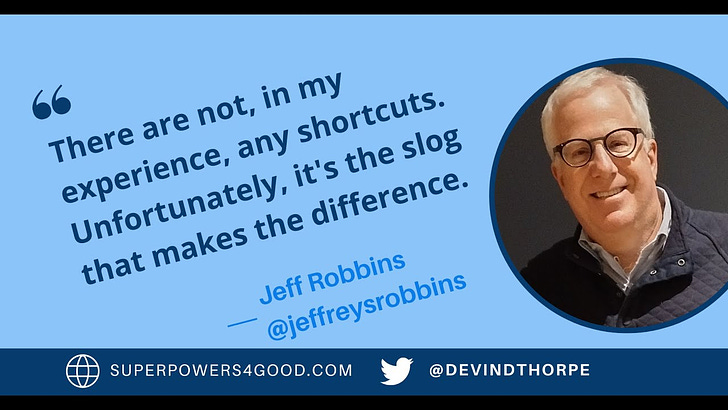



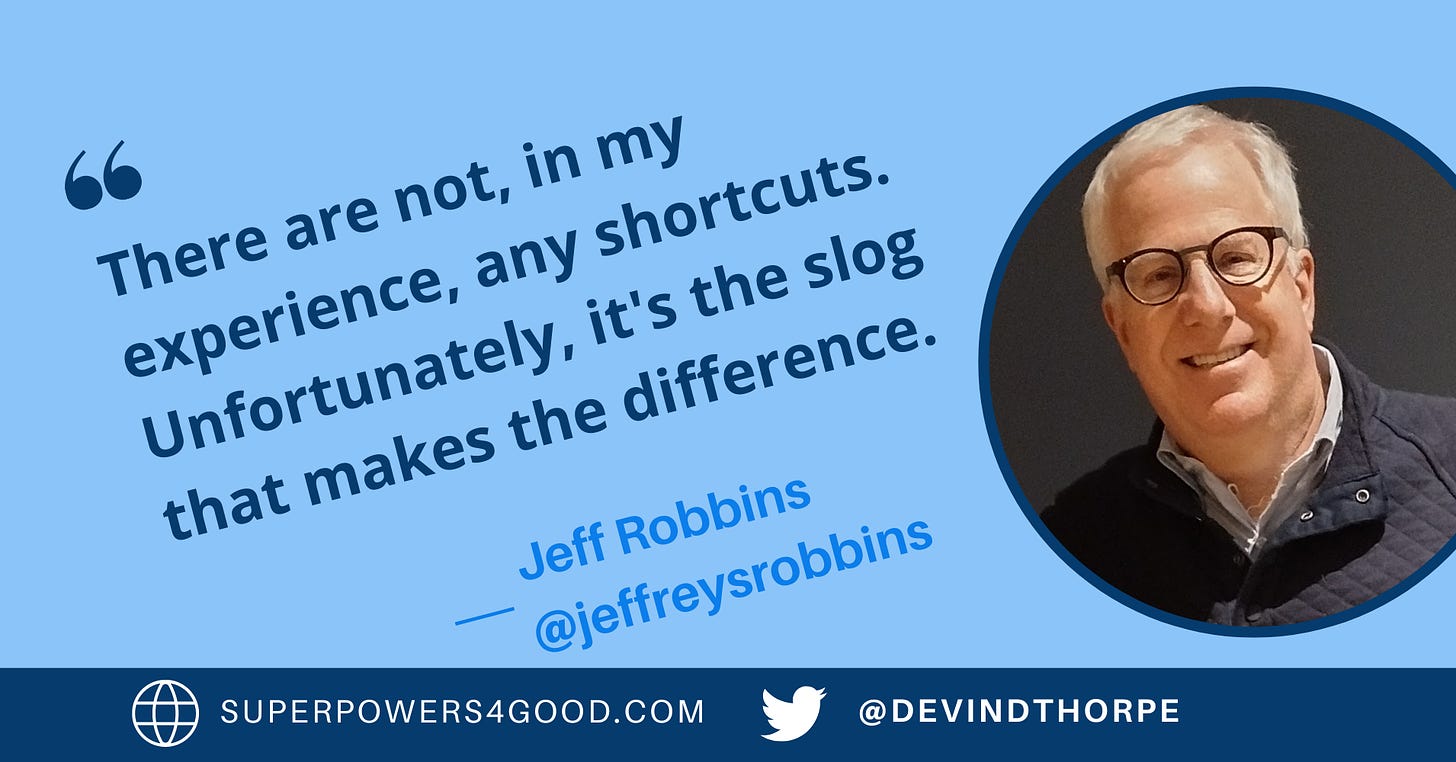



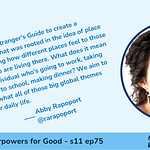

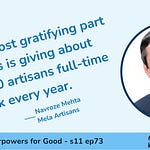











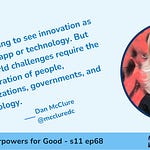
Expert: 'Embrace the Drudgery' and 'the Boring Stuff Matters Most'